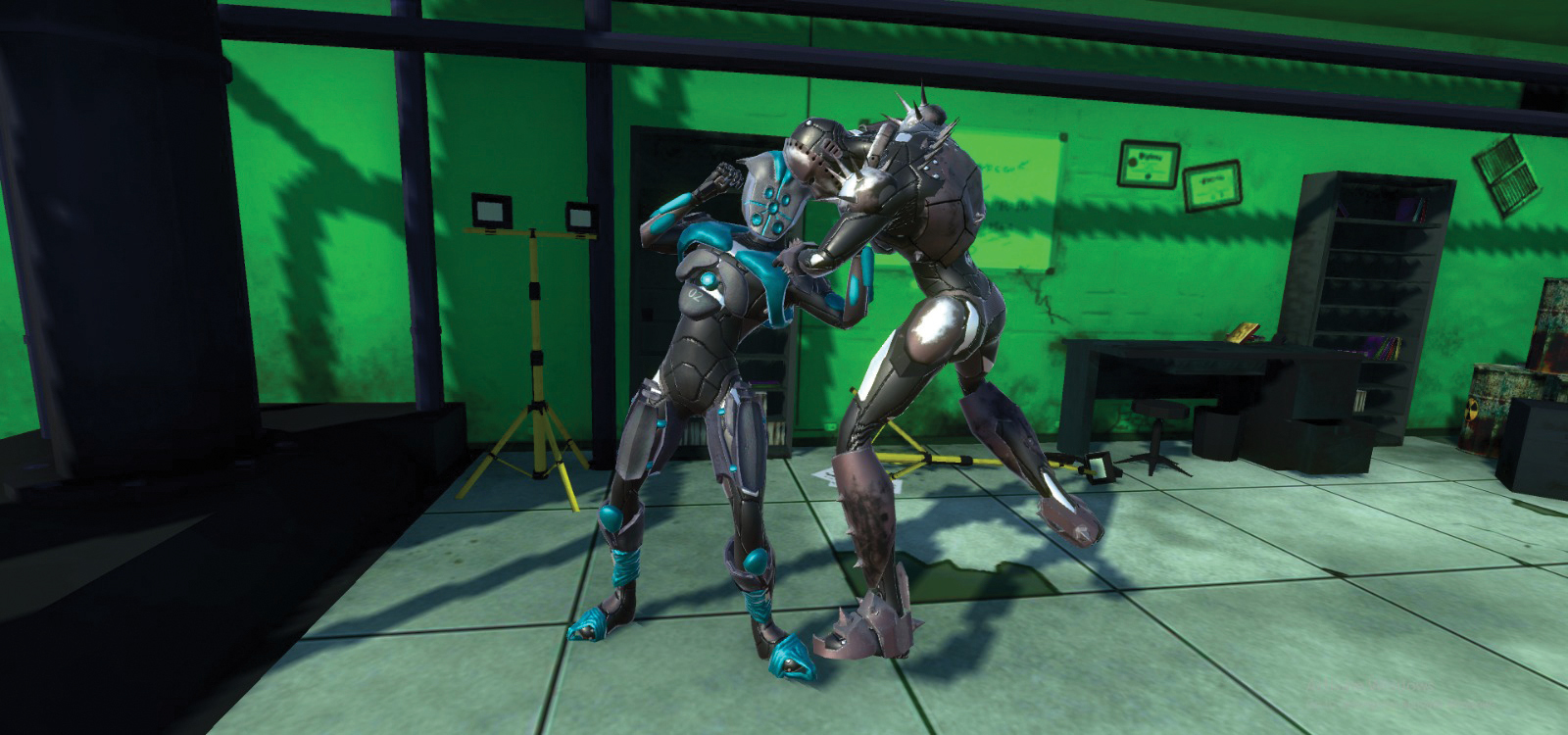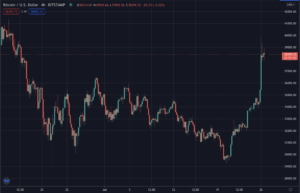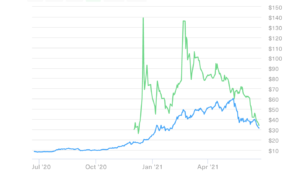
Steam, the near monopoly that dominates the gaming market may be up for disruption by the very new technology of NFTs.
Non Fungible Tokens (NFTs), allow for proof of ownership of digital items, including games, in a distributed and decentralized way without an intermediary, like Steam, to take a 30% cut, to kick you out of the platform, or to remove a game.
NFT Gaming (NFTG) plans to build this platform with it stating their goal is “to develop a robust digital gaming platform, to be named ‘Gaxos,’ that brings together gamers, developers, and publishers.”
“We believe that the ability to mint and use NFTs in-game that are distinguishable and tamper-proof offers gamers more power over their asset and the ability to have an augmented and exciting gaming experiences,” they say in an IPO filing.
In addition to minting NFTs in-game, the game itself arguably can be an NFT, allowing for actual ownership.
Currently, with platforms like Google Play, you don’t buy a movie but rent. The platform can deny you access, and does not allow for the transfer or rent out of the movie.
With token ownership, a digital asset can to some extent mimic a physical asset. Like your cassette as they used to be or DVD, you can just give it to whoever you want, or indeed sell it.
Actually implementing such a thing however is naturally very difficult, and to begin with it would require some level of semi-centralization, but the token ownership processed through the public blockchain would nonetheless make it more distributed than something like Steam.
They plan to use Polygon, which for now is an ethereum sidechain that plans to launch a zkEVM, that in effect being ethereum, but with penny fees.
The team of NFT Gaming, however, appears to have mostly a financing and investment background, but interestingly they have a license with Columbia University. They say:
“Columbia University granted us a royalty-bearing, exclusive, worldwide, non-transferable license to certain intellectual property to (i) discover, develop, manufacture, have made, use, sell, offer to sell, have sold, import, export, distribute, rent or lease certain Licensed Products (as defined in the Columbia Agreement) solely for computer gaming for entertainment purposes involving non-fungible tokens (NFTs).”
This is not running, so the business currently does not have any revenue. In addition no one can in any way predict whether they will succeed as they are entering a very experimental field with its actual capabilities unknown and untested at this stage.
However conceptually, why do we really need Steam? They are there to attribute ownership and through that attribution grant permissions and they also process the payments.
All this can be automated through blockchain based NFT platforms, and though the graphics part may maintain some centralization since all this is extremely new, the base design would have to be token equals game.
That opens the platform and allows for actual ownership, rather than renting. In addition, fees can be far lower and gamers, as well as game developers, can have far more control.
Steam therefore may be at risk of disruption, something they know very well as they recently banned NFTs in what arguably is an anti-competitive action with their parent company, Valve, updating the rules last year to disallow “applications built on blockchain technology that issue or allow exchange of cryptocurrencies or NFTs.”
They can’t ban the blockchain however, but whether NFT Gamer is it, is of course very much up in the air.
Nonetheless what is somewhat more certain is that a new field has opened with unknown potential or capabilities, but with significant room for exploration as actual ownership of digital assets might be a very significant competitive advantage, especially since it is all natively digital.
- SEO Powered Content & PR Distribution. Get Amplified Today.
- Platoblockchain. Web3 Metaverse Intelligence. Knowledge Amplified. Access Here.
- Source: https://www.trustnodes.com/2023/01/04/nft-platform-files-for-ipo-to-take-on-steam
- a
- ability
- access
- addition
- ADvantage
- Agreement
- AIR
- All
- Allowing
- allows
- and
- asset
- Assets
- augmented
- Automated
- background
- Ban
- banned
- base
- based
- being
- believe
- blockchain
- blockchain technology
- Brings
- build
- built
- business
- buy
- capabilities
- Centralization
- certain
- Columbia
- company
- competitive
- computer
- Conceptually
- control
- course
- cryptocurrencies
- Currently
- Cut
- decentralized
- Design
- develop
- developers
- difficult
- digital
- Digital Asset
- Digital Assets
- discover
- Disruption
- distribute
- distributed
- dominates
- Dont
- DVD
- effect
- Entertainment
- Equals
- especially
- ethereum
- exchange
- exciting
- Exclusive
- Experiences
- exploration
- export
- extremely
- Fees
- field
- Files
- Filing
- financing
- Fungible
- game
- Gamers
- Games
- gaming
- gaming market
- gaming platform
- Give
- goal
- Google Play
- grant
- granted
- graphics
- However
- HTTPS
- implementing
- import
- in
- in-game
- Including
- intellectual
- intellectual property
- investment
- IPO
- issue
- IT
- items
- itself
- kick
- Know
- Last
- Last Year
- launch
- Level
- License
- Licensed
- made
- maintain
- make
- Market
- might
- mint
- minting
- more
- movie
- Named
- Near
- Need
- New
- NFT
- NFT Gaming
- NFT platform
- NFT platforms
- NFTs
- non-fungible
- non-fungible tokens
- NON-FUNGIBLE TOKENS (NFTS)
- offer
- Offers
- ONE
- opened
- opens
- ownership
- parent company
- part
- payments
- permissions
- physical
- plan
- plans
- platform
- Platforms
- plato
- Plato Data Intelligence
- PlatoData
- Play
- Polygon
- potential
- power
- predict
- process
- Products
- proof
- property
- public
- public blockchain
- publishers
- purposes
- recently
- remove
- Rent
- require
- revenue
- Risk
- robust
- Room
- rules
- running
- sell
- sidechain
- significant
- since
- So
- sold
- some
- something
- somewhat
- Stage
- Steam
- succeed
- such
- Take
- team
- Technology
- The
- their
- therefore
- thing
- Through
- to
- together
- token
- Tokens
- transfer
- Trustnodes
- university
- updating
- us
- use
- valve
- What
- What is
- whether
- which
- whoever
- will
- without
- worldwide
- would
- year
- Your
- zephyrnet
- zkEVM












